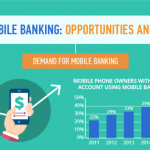FinTech SME Funding: Revolution or Evolution?
— September 22, 2017
The financial sector is also joining the digitization with the FinTech. Even though this term FinTech has come into the spotlight only in the recent time period and frequently considered only in the context of latest mobile applications, the technology has performed a major role in the financial sector since the early days of the 1950s and has been growing constantly.

FirmBee / Pixabay
FinTech has the great potential to confront the whole finance industry. It’s a term utilized to elaborate different companies operating in the financial technology sector. It majorly relates to the small start-up companies which develop innovative technological solutions regarding big data, mobile payments, Financial App Development, financial management, etc.
Fintech – Statistics & Facts
Statistics show that on a global scale the value of investment in financial technology endeavors, amounted to about 3 billion U.S. dollars in 2013 and was projected to develop to around 8 billion U.S. dollars in the year of 2018. As of February 2015, bank spending on latest technologies in North America was projected to achieve 17 billion U.S. dollars in 2015 and rise to 19.9 billion in 2017.
The Evolution and Revolution
Financial technology has been evolving in a number of ways people do not see and repeatedly taken for granted. Several services such as credit cards and ATMs are nothing but an outcome of financial technology evolution in the era of 50s and 60s. There is also back-office work in which technology has helped a lot such as core banking, treasury, data analysis system, risk management, record keeping, etc. All is needed for great support in the financial sector.
FinTech companies are not the forces that Disrupt Traditional Banking. Infect, they are providing products and services that easily are not offered by the big banks. The finTech revolution will reform finance and improve it in three basic ways:
- The FinTech disrupters will cut the costs as well as enhance the quality of financial services.
- The insurgents have smart new different ways of assessing risk.
- The FinTech newcomers will generate a unique and hence stable credit landscape.
Now it’s all about digitization in each and every sector in the world. While we have seen banks going online and also delivering services through mobiles, retail financial services are being more digitized through mobile wallets, different payment applications, number of robo-advisors as well as online lending platforms. This level of digitization can’t be persuaded with just an easy improvements to existing banking services but asking for re-thinking and re-design of the banking services as a whole.
Why revolution
Traditionally, we were completely dependent on mediators such as banks to execute each single business transactions, clearing, settling as well as record keeping. Overall, the mediators have been performing their duty greatly, but there have been issues with the growth. Traditional Universal Banks have become somewhat unproductive over the time by performing all banking services like Working Capital Loan, Change Cash Workflow, etc. under one roof.
Some other issues with the traditional banking services are:
- They keep out billions of people who are not having their bank accounts.
- It confines a lot of consumer data, so there is a risk in privacy of customers
- By being centralized it makes them flat to hack.
- They charge transactions as fee as well.
- It takes too much time (days & weeks) to transfer money across the banking system.
Technologies like social media and cloud computing have formed customer demands and expectations significantly. Keeping up with ever-changing consumer desires, the financial sector is forced to rethink their business model fundamentally.
Summing Up
While FinTech are making an important pressure on banks by taking their consumers, it is difficult to see banks becoming extinct or even extraneous. Fintechs are still a small thing when compared to banks. In the end you need a bank account to utilize most out of the FinTech services.
Business & Finance Articles on Business 2 Community
(39)











